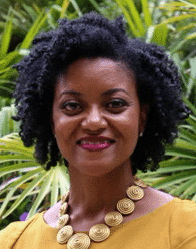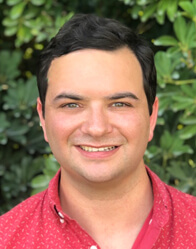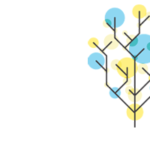Season 1 – Episode 38 – Graduate Student Advising
Advising at the graduate and doctoral levels at many institutions differs from advising at the undergraduate level. As the landscape of higher education continues to become more inclusive, so does advising at the graduate and doctoral levels, requiring faculty members to include more diversity, equity, and inclusion principles within their advising practices. While many aspects of the advising climate can be unique to individual institutions, graduate and doctoral faculty advisers should foster an environment that is accessible, communicative, and representative of inclusion.
Episode Transcript
Click to expand/collapse
Darren Gaddis:
From CITI Program, I’m Darren Gaddis, and this is On Campus. Today how to approach advising for graduate and doctoral students, what are challenges to advising graduate and doctoral students from non-traditional backgrounds, and how faculty can better prepare themselves to advise students with backgrounds different than their own?
I spoke with Tamara Bertrand Jones, Associate Professor of Higher Education and Associate Director for the Center for Post-Secondary Success at Florida State University. She uses qualitative methods and critical and feminist theories to examine educational and professional experiences of underrepresented populations in academia.
As a reminder, this podcast is for educational purposes only. It is not intended to provide legal advice or guidance. You should consult with your organization’s attorneys if you have questions or concerns about relevant laws and regulations discussed in this podcast. Additionally, the views expressed in this podcast are solely those of the presenter and do not represent the views of their employer.
Hi, Tamara. Thank you for joining me today.
Tamara Bertrand Jones: Thank you for having me.
Darren Gaddis: To help us ground today’s conversation, how has the college student population changed in recent years, specifically among graduate and doctoral students?
Tamara Bertrand Jones:
In the last 10 years, the number of doctoral degrees and master’s degrees conferred to students increased by 22%. Within the last year as it relates to diverse students related to race, there’s been an increase in the number of diverse students who were first time enrollees in graduate school, and we’ve seen these increases across the board with American Indian or Alaskan native students, with their increase about 9%. Black and African American students increased 16%, and Latinx students increased about 20%. So between fall of 2019, the fall of 2020, women have also increased about 5% in graduate enrollment.
And so with these increases, I think there’s an opportunity for institutions, individual faculties to better support these students. A lot of times with the ways that the student population changes, our faculty or our ways of engaging students don’t change. So I think these increases in enrollment across populations provide us an opportunity to reconsider some of our practices.
Darren Gaddis: And since today’s conversation is all about advising both graduate and doctoral students, would you be willing to share your personal approach to advising both graduate and doctoral students before we jump further into our conversation today?
Tamara Bertrand Jones: I like to think of my approach as a culturally responsive approach that’s largely grounded in culturally relevant pedagogy, which scholars like Gloria Ladson-Billings and Geneva Gay and others have written about these ideas in K-12 education. And at the core of culturally relevant or culturally sustaining pedagogy or culturally responsive pedagogy is an understanding of who your students are and using that understanding to inform your pedagogy. And so for me, part of that includes making sure that I understand who my students are, that I have a clear picture of where they come from and where they like to go, and how do I incorporate their cultural ways of communicating? How do I incorporate my cultural ways of communicating with them? How do we engage in an intimate relationship?
And when I say intimate, I don’t mean in an inappropriate way, but thinking about if you have someone that you care about, you engage with them in a slightly different way as compared to someone who you don’t know really or you don’t fully or are not supportive of. And so I try to use these ideas of understanding who my students are to ground my relationships with them.
Darren Gaddis: How do you advise students from diverse or non-traditional student backgrounds?
Tamara Bertrand Jones: Part of it is remembering that students are people. Our students come to us having lived life before they decided to pursue graduate education, and with that understanding that they have perspectives and opinions and experiences that have shaped who they are. So at a core is understanding who those students are and what their previous experiences have been and how that does shape their expectations or their perspectives or even their future plans or future goals. So I think part of that is getting to know the students and developing that meaningful and substantive relationship with them.
So I usually start with telling them about me or telling my story and always including personal tidbits and fun facts that sometimes I think professors might seem or might deem inappropriate or personal. And I think that there’s definitely a fine line in this, but that usually helps us get beyond the typical tell me about yourself on a resume or facts that they’ve read about each other but really don’t know what that means. What drove me to pursue a doctorate? What’s driving my students to pursue this degree? What goals or desires do they have and how can I help them to meet those goals or desires?
I was listening to an interview recently with someone that I follow on social media, and she talked about moving to another country and part of the education interviews that she was doing to find her daughter a school. They asked her, “What’s your family project?” That question resonated with me because for many first generation students, for many underrepresented students, the degrees that they’re pursuing have meaning outside of themselves. They are doing these things, yes, because they desire to, they’re getting these master’s or doctoral degrees because they want to further their education and they want to improve their professional development. But at a core of taking these steps is they want to change their families. They want to change their families economically or aspirationally.
And so thinking about or even asking students now, “What’s your family project? What is the reason why you are pursuing this degree? And how does that relate to not just you, but future generations?” And I think that’s a really powerful question, one, to get students to answer or to consider. And then also for those that already have considered that and are able to articulate that response to me, then it helps us to understand why they’re pursuing this degree. Or if not, gives them something to think about that might be bigger than themselves.
And for me, that helps to guide or helps explain as well as guide student choices as they move forward. So if your goal is to become a faculty member, then my advice is different for those that choose to, say for instance, become an administrator at a higher education institution versus those that may even want to go into private industry. So all of those things I think are grounded in understanding students and understanding them at a deeper level than I think we sometimes pursue our relationships with them.
Darren Gaddis: What are some challenges students from differing backgrounds might face compared to what is often referred to as the, quote/unquote, traditional student?
Tamara Bertrand Jones: I think imposter syndrome or imposter phenomenon is one of the experiences that regardless of students’ backgrounds that they have talked to me about experiencing in graduate education. And I think it’s that combination of a new and challenging educational environment for many students, depending on the institution types they came from and the institution types they pursue their graduate degrees at, there may be some difference in those environments. And so that environmental change can spark these questions about your confidence or your competence. That self-doubt, that questioning, I think is usually, unfortunately, it’s common in the doctoral program, but I think that’s exacerbated for students who are not considered traditional students, who might have some additional considerations as they’re making choices or decisions about their degree programs and their future plans. So I think it’s that psychological and those challenges can often turn into physical challenges that can often manifest as sickness or mental health disease or fatigue or stress or other detrimental health effects that also in turn affect their academic and their professional performance.
And so helping students to understand that what they’re experiencing is normal, quote/unquote, normal, and what are some of those ways that we can help them to manage their experiences in a better way or connect them with folks who have similar shared lived experiences? And I think that can also be a challenge for students who aren’t considered traditional students is finding someone who has a shared lived experience or who values the lived experience that they’re bringing to their degrees. And when they’re unable to find that, then the isolation, the imposter syndrome, all of those things just continue to fester and can serve as deterrents for our students from completing their degrees.
Darren Gaddis: What resources are available at your institution for students from differing backgrounds as they go through their graduate or doctoral program?
Tamara Bertrand Jones: I’m glad that we’re having this conversation because I don’t think that this is a normal part of the conversation we have around advising. Advising in many institutions or many programs centers on the academic decisions that students make. What advice can we ensure that they have in order to complete their degrees? And because of the current political climate as well as our desire to treat everyone equal, we don’t like to take into consideration diversity. And when I say diversity, I mean literal diversity in the sense of difference. And so as a result of that, we try to advise all students in the same way.
And while I agree there’s certain information that all students need access to, and we want to make sure that there are not inequities in the access to information or the ability to apply that information or opportunities, but how students process that information can be different. The ways that they engage with different faculty members or different staff, or even engage with different students, I don’t think acknowledging that there are differences that contributes to inequity. Wanting to acknowledge that students do have different experiences requires us to then create resources for that.
And in many institutions, there are definitely racial or ethnic graduate student organizations or undergraduate organizations that are accessible to graduate students. Accessible to all students are mental health resources or fellowship and graduate award assistance in locating or applying for these awards.
And so I think the question to ask ourselves is, what do these students need to be successful, and what resources can we repurpose to make sure that all of our students are accessing them so that they can be successful? I don’t know if we ask that question. We typically connect students with the current resources, and sometimes there are gaps in those resources meeting their needs versus us creating new things or repurposing current things, current programs, initiatives, or resources to better meet students’ needs.
Darren Gaddis: Tamara, in your opinion, how can faculty members better prepare to advise students who have backgrounds which different from their own?
Tamara Bertrand Jones: Continue to get to know yourself, do your own work. Do your own homework, I like to say. Be honest about what you don’t know and then create a plan for learning it to be able to better relate to and connect with your students.
I began advising several women from China, and I didn’t know much about Chinese culture or about Chinese history. And so I had to understand how I wanted a very relational flat, if you will, not very hierarchical relationship with my students. And that was not part of the culture, part of her educational upbringing. And so she had to explain to me this that you want is not how we’re taught, how I was taught to relate to you. And so there’s going to be some, you got to give me some time to get used to this type of relationship that you want to have.
It was something that she had to educate me on, and then I had to do my own homework and learn more about her culture and her experience so that it could improve our relationship. And I think she saw my willingness to learn as an opportunity and as an example of how I cared about her.
I would encourage faculty to consider figuring out what are those blind spots that they have and then create a plan for understanding, for learning. Just because we don’t share similar lived experiences with our students, there may be ways of communicating or examples that you use or even attitudes that we have about work or life or even money that can distance us from our students who are different than us. And so understanding where students are coming from, what, again, lived experiences they’ve had, helps us to be able to better relate to them. And then that in turn influences positively their retention. It helps them to matriculate because they feel included, they feel seen and heard, or at least have an advisor that is willing to do that work. I would encourage faculty to start there. What don’t you know? And set about learning more to be able to relate to and be more responsive to your students.
Darren Gaddis: What else should we know about advising graduate and doctoral students who have different backgrounds than our own?
Tamara Bertrand Jones: That diverse students are not a monolith and even within racial or ethnic groups, that there’s difference in that. There’s nuance to the personal, to the lived experiences that students who identify as a part of those groups that they have. So as a part of our work, it’s, yes, learning about in general these populations, these diverse populations, but it’s also, again, connecting with your students on an individual level to learn about how their experience compares with what you may have learned in doing your own homework about the broader culture. So just recognizing that not everyone that identifies or is a part of an underrepresented or a marginalized, minoritized population has the same experience as what might be generally communicated about that group.
Darren Gaddis: Tamara, thank you for joining me today.
Tamara Bertrand Jones: Thank you for having me.
Darren Gaddis: Be sure to follow, like, and subscribe to On Campus with CITI Program to stay in the know. If you enjoyed this podcast, you might also enjoy CITI Program’s other podcasts, On Tech Ethics and On Research. You can listen to all of CITI Program’s podcasts on Apple Podcast, Spotify, and other streaming services. I also invite you to review our content offerings regularly as we are continually adding new courses, subscriptions, and webinars that may be of interest to you, like CITI Program’s new Environmental Health and Safety subscription. The Environmental Health and Safety subscription provides organizations with key content areas related to health and safety. All of our content is available to you anytime through organizational and individual subscriptions. You may also be interested in CITI Program’s Conflict Management course.
How to Listen and Subscribe to the Podcast
You can find On Campus with CITI Program available from several of the most popular podcast services. Subscribe on your favorite platform to receive updates when episodes are newly released. You can also subscribe to this podcast, by pasting “https://feeds.buzzsprout.com/1896915.rss” into your your podcast apps.
Recent Episodes
- Episode 37: Mental Health and Student Health Services
- Episode 36: Data Management and Research
- Episode 35: Women Faculty Members and the Tenure Process
- Episode 34: Changing Landscape of Adult Learners
Meet the Guest

Tamara Bertrand Jones, PhD – Florida State University
Tamara Bertrand Jones, PhD, is an Associate Professor of Higher Education and Associate Director for the Center for Postsecondary Success at Florida State University (FSU). She uses qualitative methods and critical and feminist theories to examine the educational and professional experiences of underrepresented populations in academia.
Meet the Host
Darren Gaddis, Host, On Campus Podcast – CITI Program
He is the host of the CITI Program’s higher education podcast. Mr. Gaddis received his BA from University of North Florida, MA from The George Washington University, and is currently a doctoral student at Florida State University.








